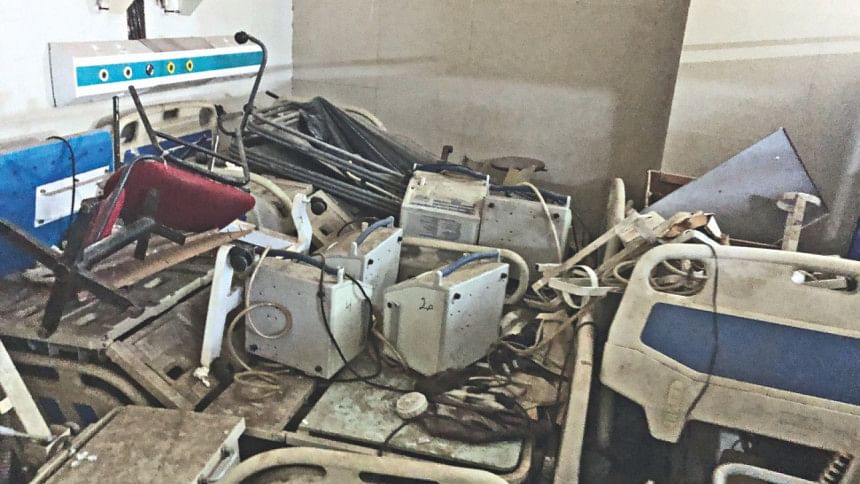A public cancer hospital crippled by negligence

A report in this paper regarding the sorry state of the National Institute of Cancer Research and Hospital has left us aghast at the extent of negligence of those in charge of the institution. Crucial, expensive equipment to treat such a serious disease as cancer, had been purchased but were allowed to sit idle for years. Either an essential component is missing and has not been replaced for years or the machines are rotting in a corner of the storeroom. The result is that many cancer patients, most of them in low income brackets, cannot get the treatment they need to survive. It is literally a matter of life and death which makes such irregularities all the more shocking. How could those in charge of the hospital sit on such serious lapses in management and operations that have rendered the hospital practically dysfunctional in some very important departments?
Our reporter's investigation has found that eight, high-end ventilators for the Intensive Care Unit, bought 12 years ago, have never been installed which means the ICU department has been reduced to a four-bed unit from an eight-bed unit depriving critical patients who need ventilators of such care. Meanwhile the motherboards of the ventilators have been stolen leaving the machines completely useless. The report has also identified other essential equipment required for cancer detection and treatment lying idle or non-functional because some part was missing due to theft.
How can an institution that is the lone specialised public hospital for cancer treatment be riddled with such blatant irregularities? According to the investigation, the ICU in charge had written several letters to the hospital's director requesting him to take initiatives to install the machines but nothing was done. Can the director absolve himself of responsibility by just saying that the machines had been purchased before he took over? What did he do when he did take over and found the state of the equipment? We are quite shocked at his answer regarding how the ICU will function without ventilators—that putting cancer patients on ICU does not really improve their condition, rather just adds to the cost. Such glib and insensitive answers are not befitting of someone in his position.
It goes without saying that the government must demand answers for such gross lapses in management and waste of public money. The health sector is one that is badly in need of reform. One of the most primary measures should be to make sure existing resources and capacities are fully utilised. This will require a stringent system of accountability and internal control within each institution. The media has published innumerable cases of such waste of existing resources in public hospitals. The health ministry should investigate each and every public hospital and healthcare complex to remove such irregularities, address the deficiency in resources and manpower and make these establishments fully functional.

 For all latest news, follow The Daily Star's Google News channel.
For all latest news, follow The Daily Star's Google News channel. 



Comments